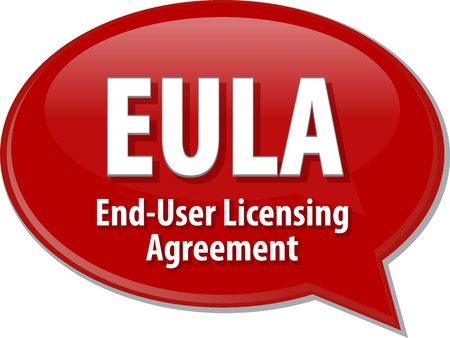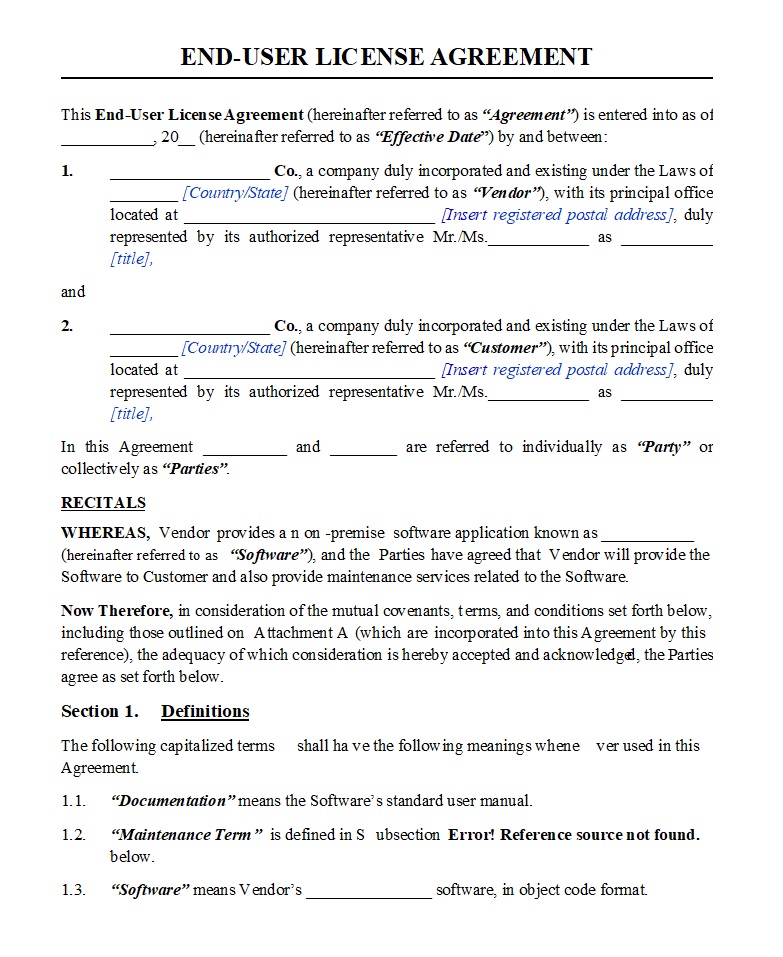Estimated reading time: 3 minutes
An End-User License Agreement (EULA) is a legal contract between a software provider and the individual or entity using the software. It outlines the terms and conditions under which the software can be used.
Major Elements of an EULA

A well-structured EULA includes essential clauses that define user rights. It specifies whether the license is perpetual or time-limited. Additionally, it states the permitted usage, restrictions, and potential penalties for violations.
The agreement often covers limitations on modifications, redistribution, and reverse engineering. Many EULAs also include disclaimers that protect the software provider from liability. Therefore, reading the agreement carefully is crucial before using the software.
Why an EULA Matters
An EULA protects both the user and the software provider. It ensures that users understand their responsibilities when using the software. Furthermore, it helps providers prevent unauthorized distribution and misuse.
For businesses, having an End-User License Agreement (EULA) in place minimizes legal risks. If a dispute arises, the contract serves as evidence of agreed-upon terms. As a result, it provides legal clarity and prevents misunderstandings.
Common Restrictions in EULAs
Most EULAs prohibit unauthorized copying or redistribution. Some agreements restrict users from modifying or using the software for commercial purposes. In addition, some software providers include clauses that limit liability for potential damages.
Violation of the agreement can result in termination of the license. In severe cases, legal action may follow. Therefore, users should review the terms carefully before agreeing.
The Challenges of EULAs
Length and Complexity: EULAs are often long and filled with legal jargon. This makes them difficult for the average user to understand.
Lack of Readability: Many users simply click “I Agree” without reading the terms. As a result, they remain unaware of their rights and obligations.
Unfair Terms: Some EULAs may contain unfair or unreasonable terms. These terms often favor the provider and limit user rights.
Constant Changes: Companies can modify EULAs at any time. It is the user’s responsibility to stay informed about updates.
The Importance of Compliance
Adhering to an EULA ensures a smooth user experience. It prevents legal complications and maintains software integrity. Additionally, compliance fosters trust between users and providers.
By following the terms, users can maximize software benefits while staying within legal boundaries.
Thus, understanding and respecting an EULA is essential for all software users.
Check out more pages of our website for related content:
Access the Full Contract Directory Index
You can browse the complete alphabetical list of all commercial, financial, and project-based contract templates by visiting our A–Z Contract Index.
References
- International Association of Privacy Professionals – “Understanding End-User License Agreements” – This article explains how EULAs govern software use, outline permissions, and define user restrictions.
- Federal Trade Commission – “Software Licensing and Consumer Rights” – Guides how EULAs impact user rights, software limitations, and compliance obligations.
- Cornell Law School – Legal Information Institute – “End User License Agreement (EULA)” – Offers a detailed overview of EULA structure, enforceability, and typical legal provisions.
has been added to your cart!
have been added to your cart!



